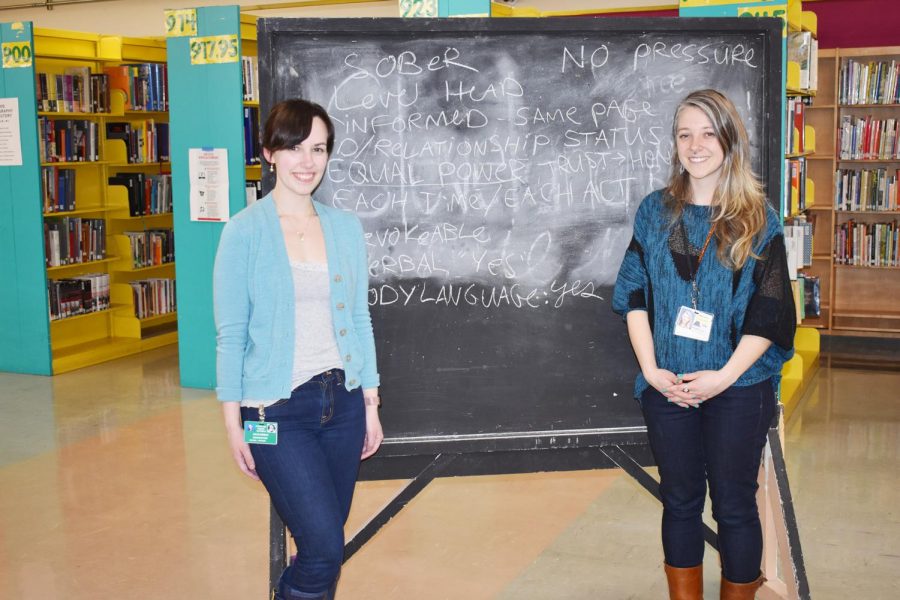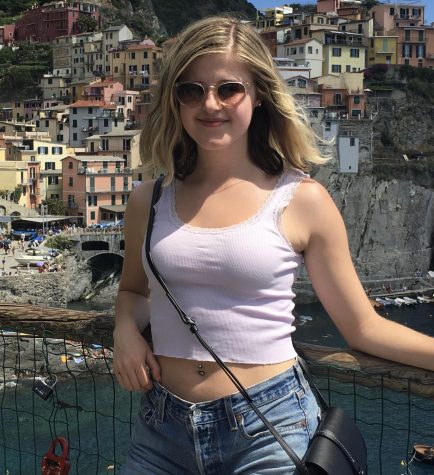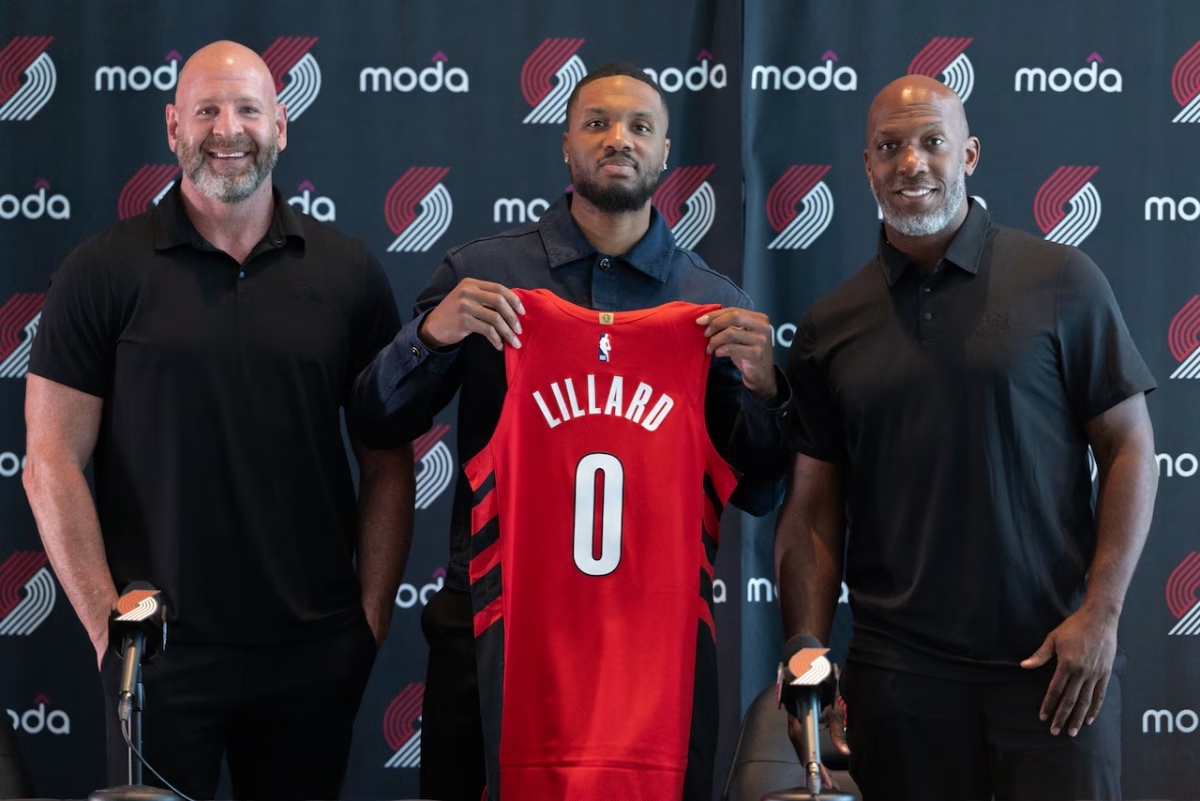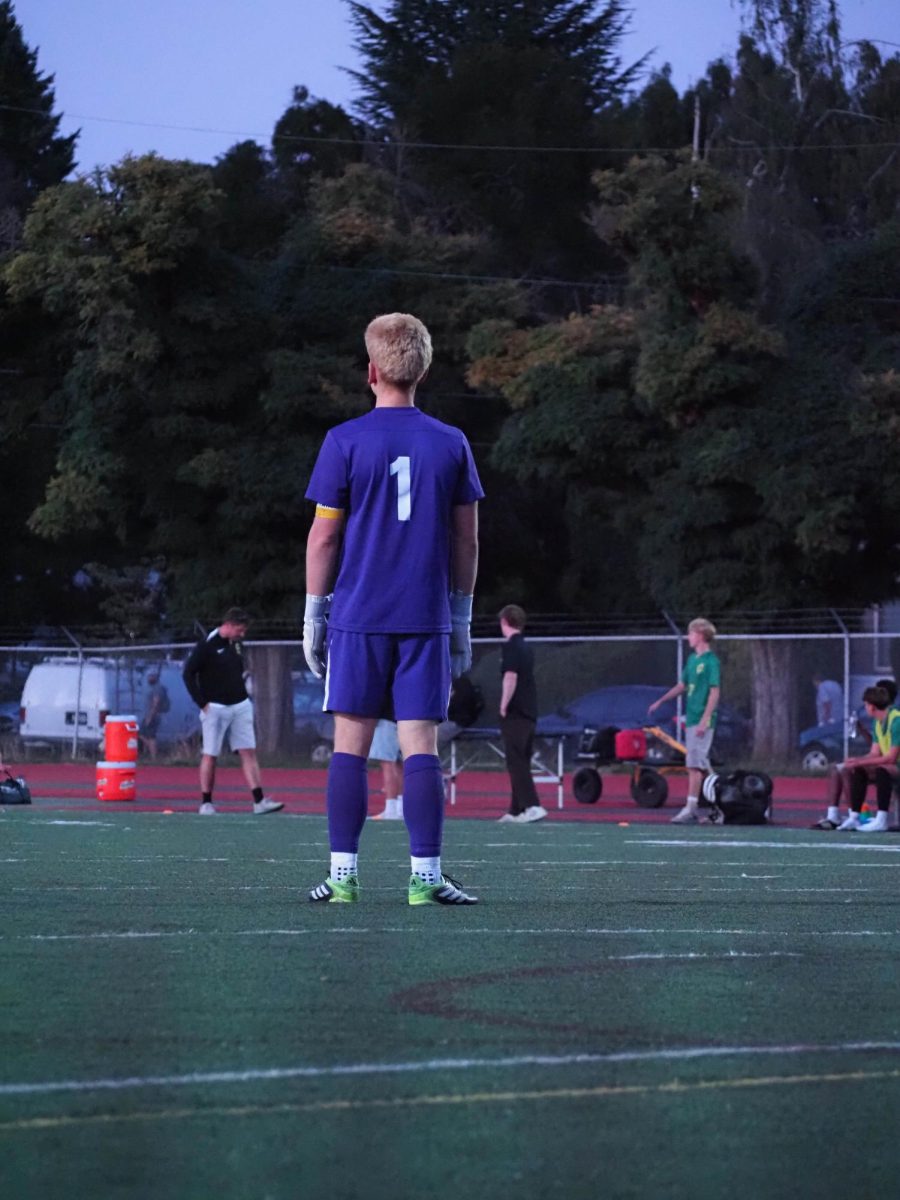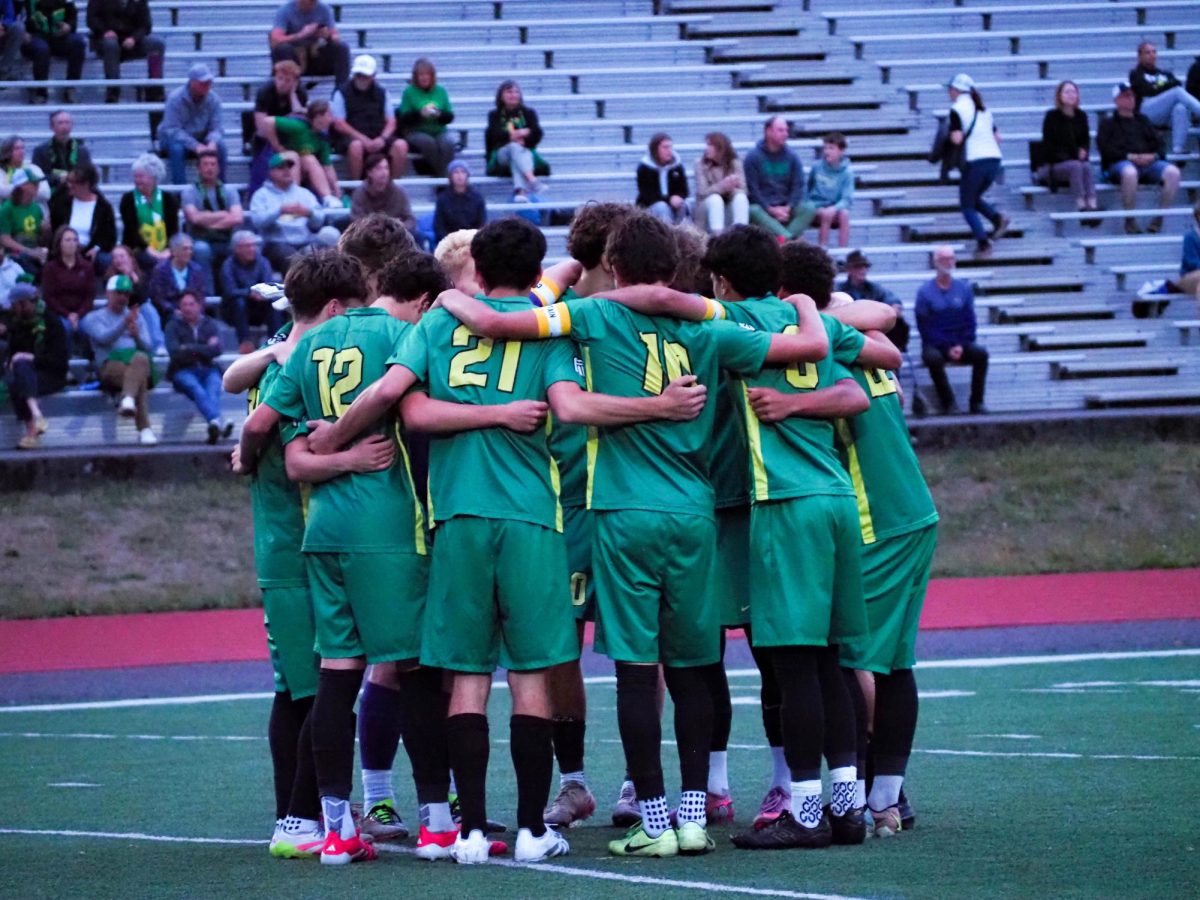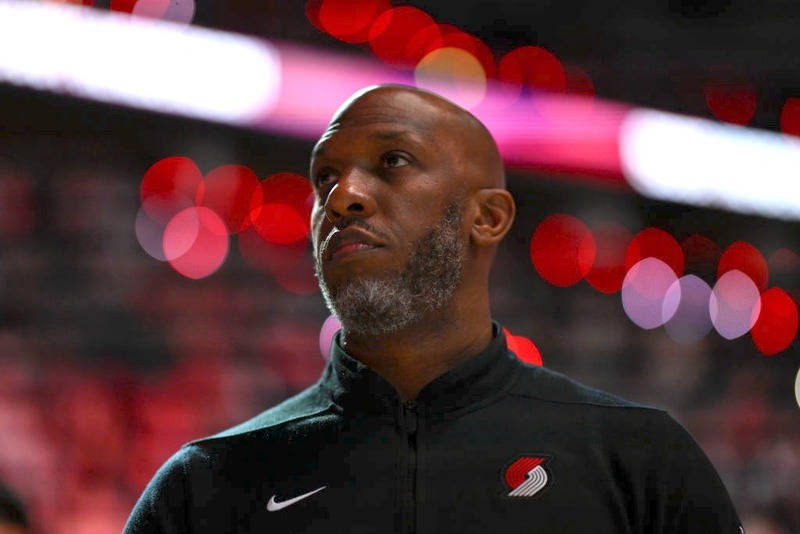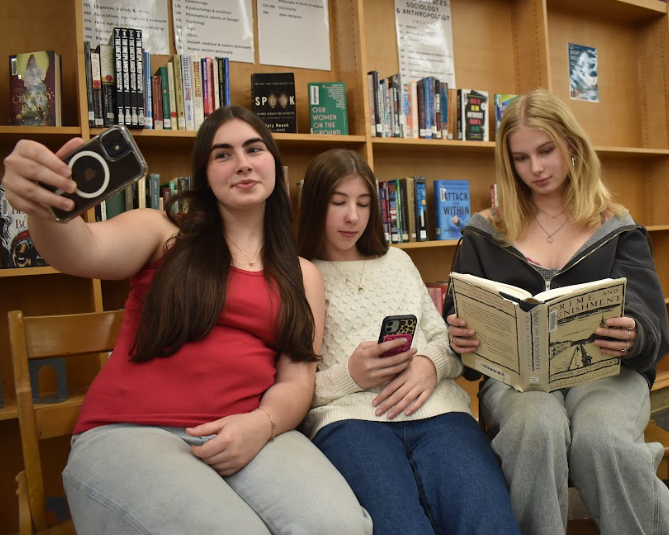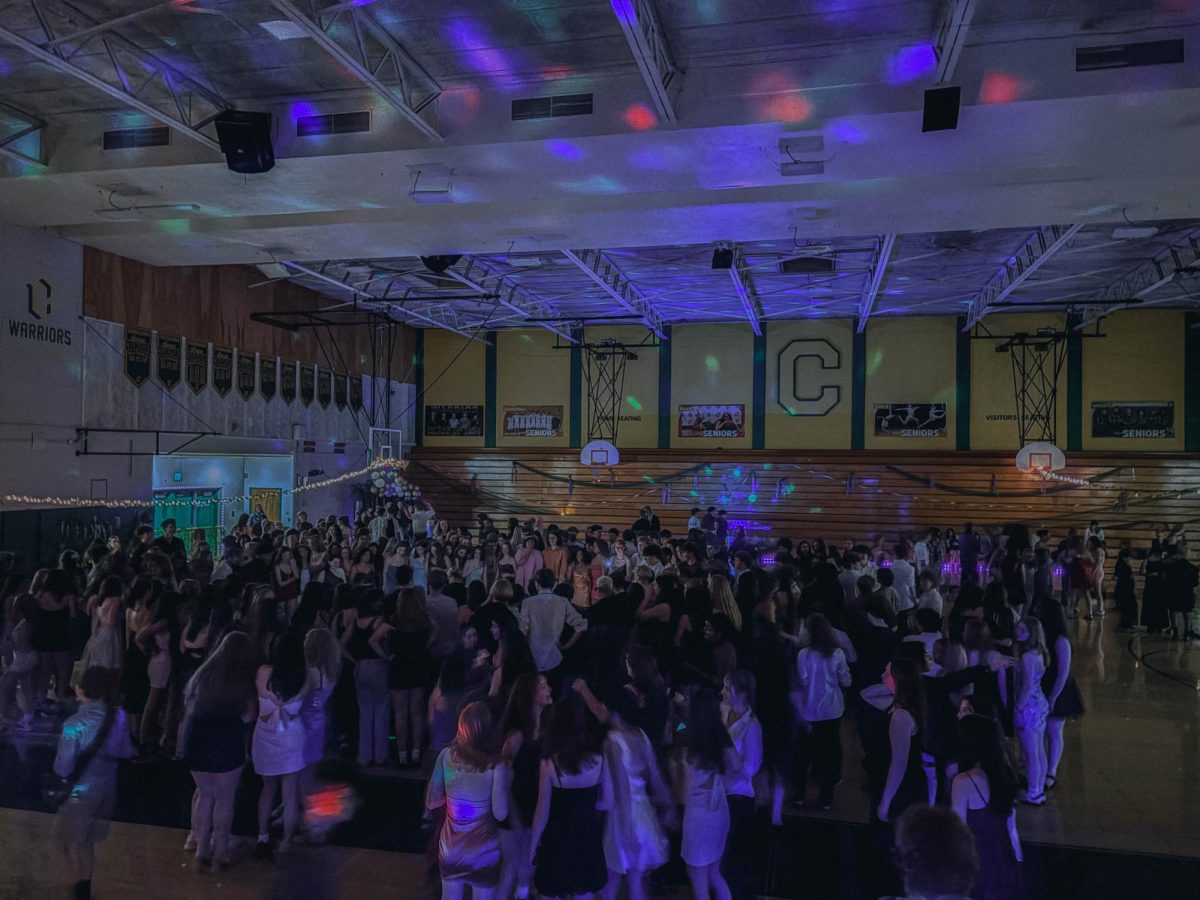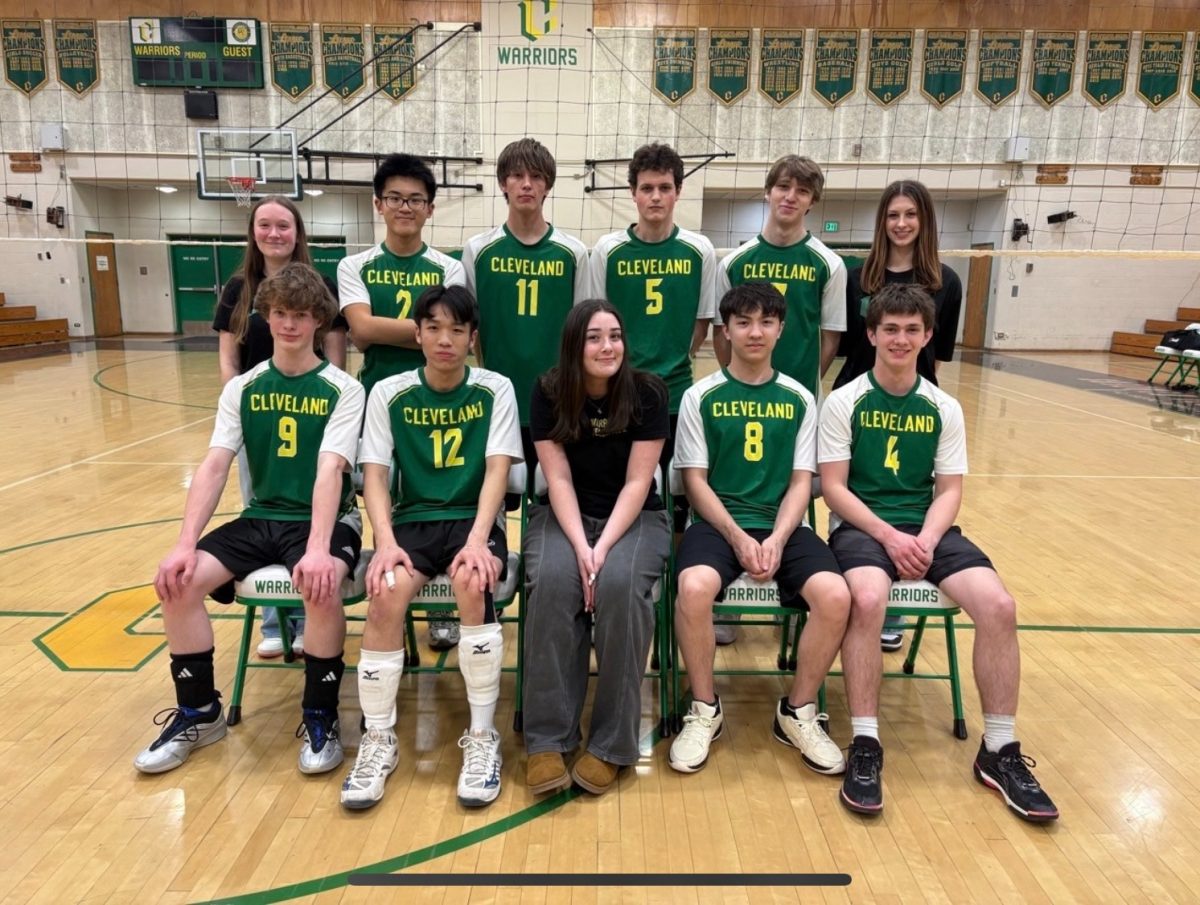Cleveland Welcomes “Confidential Advocates”
In a program believed to be the first of its kind in Portland Public Schools, Julia Noble of Raphael House and Pamela Zigo of Volunteers of America are now keeping regular office hours on campus to help teens in crisis by providing advocacy services without being “mandatory reporters”
Clarion photo Mirabella Miller
Confidential Advocates Julia Noble (left) from the Raphael House and Pamela Zigo from the Volunteers of America have been given the green light to help teens on campus. They will hold regular office hours starting April 10.
April 11, 2018
Confidential Advocates (CA’s) from the Raphael House and Volunteers of America have finally received approval to begin advocacy services at Cleveland. The CA’s, Julia Noble from the Raphael House and Pamela Zigo from Volunteers of America, are set to officially begin serving the Cleveland community on April 10. They will be in their office in room 337 on Tuesdays and Thursdays from 11:30 to 4:30.
“We are so excited and grateful to be here,” said Noble. “We’ve done a lot of work at this school, as far as teaching and workshops go, and this is just another level of being able to provide support to the community.”
After a grant was written to allow the Raphael House and VOA to continue teen advocacy, Cleveland was chosen to receive a Confidential Advocate program based on a well-established relationship with Students Active for Ending Rape (SAFER) and other workshops. As of a few weeks ago, the program has been given the green light by PPS Superintendent Guadalupe Guerrero.
The CA program faced a few obstacles that delayed implementation. The program was fully funded through the aforementioned grant given to Raphael House and VOA, but they still needed approval from district leadership before proceeding. Because of that, changing leadership at the district level put the program on hold. There was also a change in leadership at Cleveland, with Ayesha Freeman becoming principal. They wanted to allow new people to settle into their roles a bit before proceeding with this unprecedented program.
“We really tried to make sure we were crossing our T’s and dotting our I’s, because we felt like we were making history a little bit with this program,” said Zigo. “As far as we know, this is the first program like this.”
“We also wanted to make sure that Cleveland and the district and partner organizations were all on the same page before proceeding,” Zigo said. “We didn’t want any confusion about our role.”
“The last thing we wanted to do was to start advocacy services and then stop because something came up or we didn’t have all of the details worked out,” added Noble.
CA’s will be able to support students by providing resources and referrals, crisis counseling, and safety planning. A crucial aspect of the program is that CA’s are not mandatory reporters, meaning they do not have a legal obligation to report anything a student tells them. This is in contrast to teachers, counselors, and administrators, who are all mandatory reporters. CA’s can encourage reporting by the student if that is determined to be the best course of action, but reporting cannot be done by the CA.
“As a health teacher I know there are some things that my students are going through that if they disclosed it to me my first thing I have to do, especially if it is harming themselves or others…I have to report,” said Cleveland Health teacher Gaye Chapman. “And that sometimes takes me out of being present for the student…But the CA is there for the student first and foremost.”
Both Zigo and Noble emphasized that they are there for the student to provide support. “We have a strict no-advice policy…we aren’t therapists, we just want to provide support and provide resources that will help the student,” said Noble.
“[The program] is controversial in some regards because there is no precedent for having people who are not mandatory reporters in schools,” said Cleveland social worker Kate Allen. “I find it exciting that PPS has ability to show leadership in a new way, to really support young people.”
“I think the benefits of having a non-mandatory reporter in the building is that it gives students choice,” explained Allen. “It also gives them a little bit of a sense of control. Oftentimes when students are dealing with issues such as domestic violence or sexual assault, they feel very powerless. They feel that if they talk to an adult, their parents will find out and they will have to go to court…That keeps a lot of students in silence.”
“I’m excited not only for students to be able to access the CA’s, but for me to have them, because they are going to be able to come into classes and talk about some of these things like domestic violence and intimate partner violence,” said Chapman.
In addition to serving students, CA’s will be able to provide education to other members of the school. CA’s have already been active in the Cleveland community by leading staff trainings and working with the PTA to hold parent workshops.
“We feel very fortunate to have a good relationship with the administration and the PTA,” said Noble.
“We think it’s important to reach all members of the community, so everyone is on the same page and using the same language when having these conversations. We realize that teachers aren’t the only people [students] talk to… so we want to reach administration and parents as well,” said Zigo.
One such workshop was held on March. 21 following a PTA meeting. Led by the CA’s and Cleveland sophomore Kari Gutmann, the presentation was titled “Conceiving and Promoting Consent Culture.” The presentation explored ways parents and mentors can provide guidance to teens as they develop healthy communication skills regarding relationships. It incorporated many discussions and prompted attendees to think of tangible ways they could reinforce healthy communication and decision-making.
Gutmann reemphasized the value of confidential advocates as non-mandatory reporters. “I think they are a great resource for students because I think a lot of times students are scared to go to the adults at this school because they are mandatory reporters,” she said. “Knowing that your information isn’t going to get spread around is really really important.”
The CA’s hope that this program inspires more like it to be implemented.
“We see this as being a model that could potentially spread to other districts in Oregon and even beyond,” said Zigo.
“We really believe that students deserve these services, and we have fought really hard to get here, so we are happy to be a part of the support network that students can access,” said Noble.



